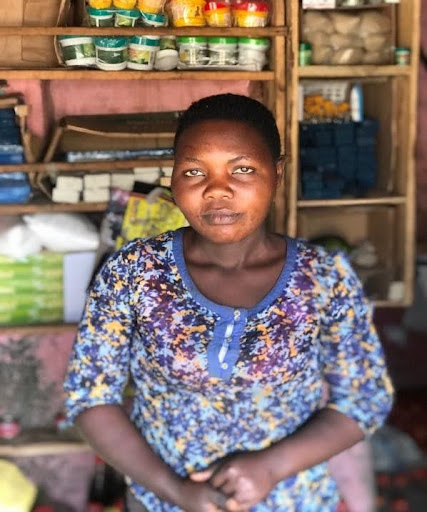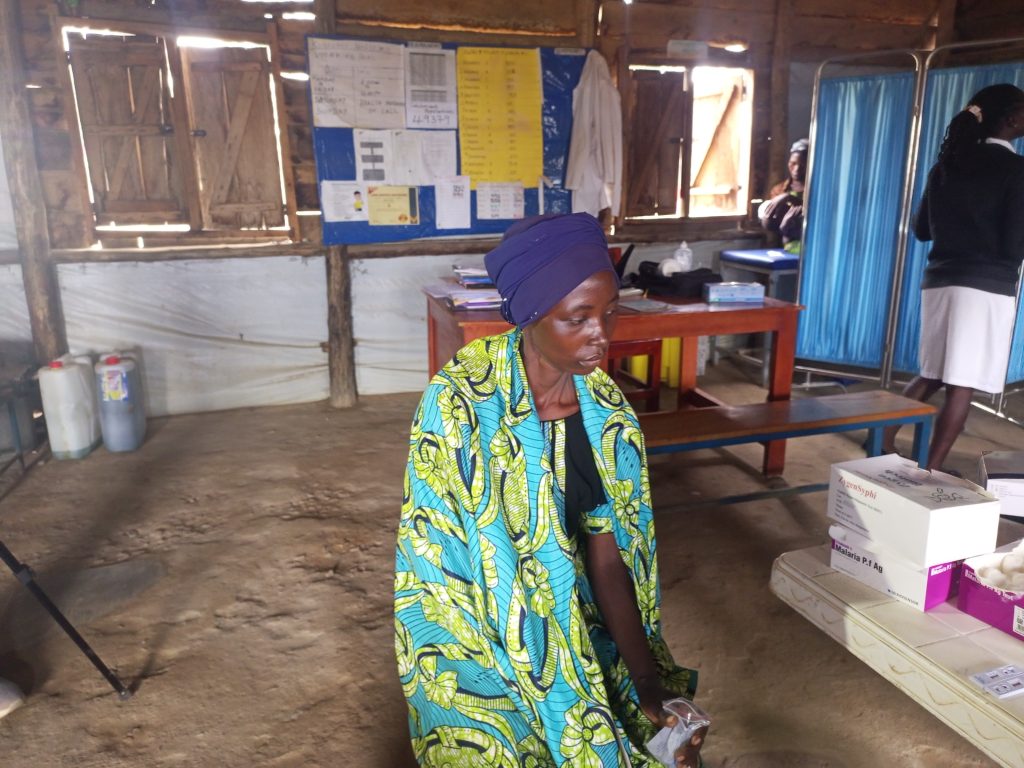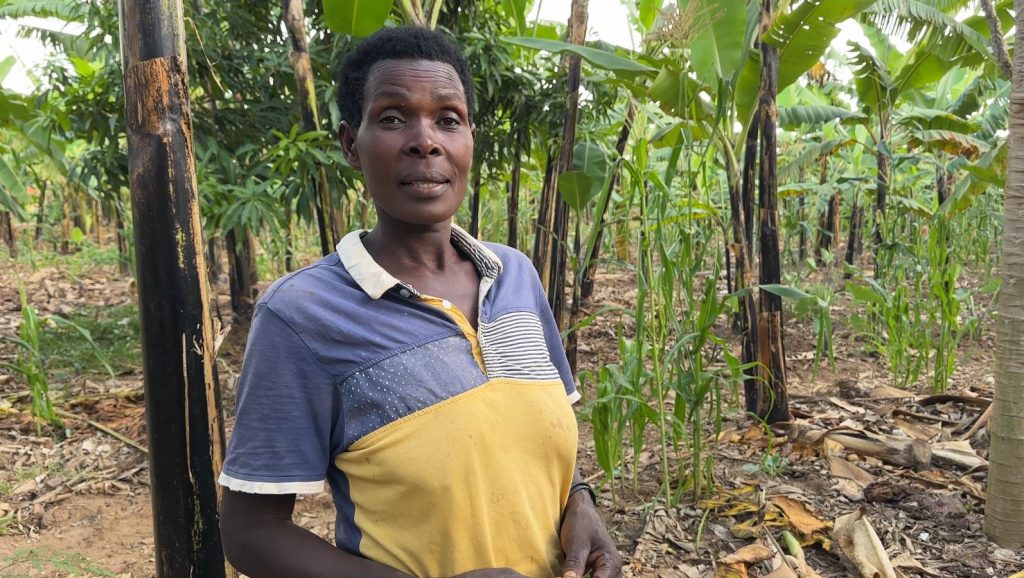The Impact of Family Planning on Kelemanzi Wiziyimana’s Life
Kelemanzi’s Choice to Use Family Planning Created a Brighter Future for Herself and Her Children.
As a single mother of three young children aged 6, 4, and 2. Kelemanzi Wiziyimana faced a unique set of challenges within the refugee settlement. Balancing the demands of motherhood with the responsibilities of running a small grocery business, her daily life was a constant juggling act. The burden of unplanned pregnancies threatened to derail her dreams and limit the future she envisioned for her children.
“I used to feel overwhelmed and uncertain about the future,” Kelemanzi recalls. “Every day was a struggle to make ends meet, and I worried about how I would give my children the life they deserve.”
Hope came from an unexpected source: the village health teams working under Shared Action Africa’s family planning project. When Kelemanzi was introduced to the concept of family planning, it marked the beginning of a life-changing journey. With the guidance and compassionate support of local healthcare providers, she made the informed decision to adopt the Jadelle implant method.
“This choice gave me a sense of control over my life for the first time in years,” she says. “I could finally plan my future and focus on what matters most my children.”
The impact of this decision rippled through every part of her life. With her children spaced out more effectively, Kelemanzi was able to distribute her time, energy, and resources more equitably. This balance enabled her to keep her grocery business running and ensure her older children could attend school something she once thought was out of reach.
“Before, I was just surviving. Now, I’m building a future,” she says proudly.
The Jadelle implant empowered her to take charge of her reproductive health, and as her confidence grew, so did her passion for family planning advocacy. Inspired by her own transformation, she began encouraging other women in the settlement to explore their options and make informed decisions about their own reproductive choices.
“Many women are afraid or misinformed,” Kelemanzi explains. “When they see my story, they realize they’re not alone and that they have choices.”
Her resilience and perseverance have made her a source of inspiration in her community. Kelemanzi’s personal journey has become a powerful example of how knowledge and access to healthcare can shift the course of a person’s life. Her influence reaches far beyond the walls of her small shop, spreading awareness and hope.
Through her determination and the support of Shared Action Africa’s family planning program, Kelemanzi has proven that single mothers have the power to shape their destinies and create better lives for their families. Her story is a testament to the strength of women who refuse to be defined by hardship.
“Family planning changed everything for me,” she says. “Now, I can dream again—not just for myself, but for my children.”
Today, Kelemanzi’s journey stands as a symbol of empowerment, resilience, and the transformative power of choice. Her story continues to inspire others, showing that with the right support and information, even the most difficult circumstances can be turned into opportunities for growth and change.




